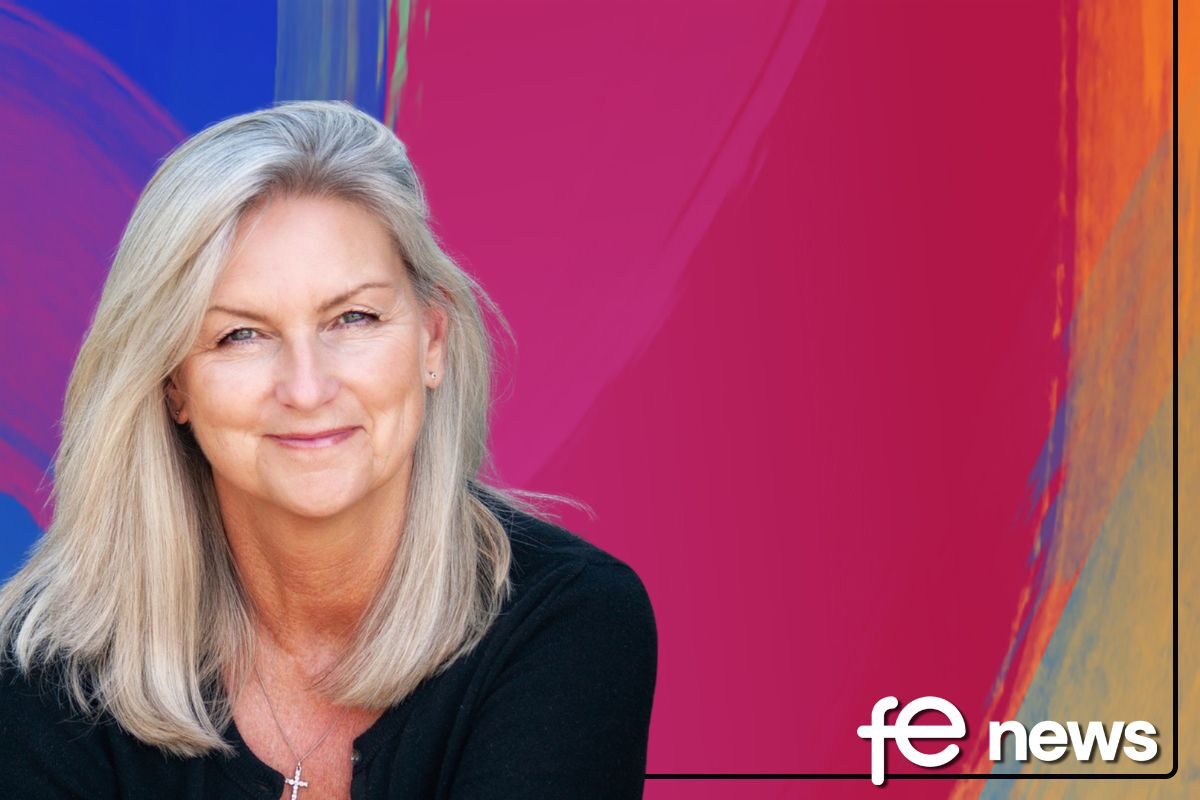The skills of the future: Identifying and empowering Dyslexic Thinkers in FE

One in five students are dyslexic, showcasing incredible strengths in areas like creativity and problem-solving — Dyslexic Thinking skills which will be vital for future workplaces. However, our education system often fails to spot and support dyslexics, while traditional benchmarking measures them against the very things they find challenging. The solution? Rapidly train every educator to identify, support, and empower every Dyslexic Thinker.
One in five students are dyslexic, their brain processes information differently. They are often naturally curious and highly creative, with an ability to unconventionally connect the dots and think laterally. This difference in thinking results in some challenges but many extraordinary strengths too – in areas like creativity, problem solving, empathy and communication – which are now the top skills every workplace is looking for, according to research by the World Economic Forum.
Despite having these valuable and vital skills, our education system fails to spot and support dyslexics and traditional benchmarking (like standardised tests) disadvantages dyslexics, measuring them against the very things they find challenging (rote learning, timed tests).
However, the solution is simple: we must rapidly train every educator to ensure that they are able to identify, support, and empower every Dyslexic Thinker.
Research shows that only one in 10 UK teachers have a good understanding of dyslexia and only 3 per cent of schools in the UK screen for it, so it’s no surprise that 80 per cent of dyslexic children leave school unidentified.
Of those who are identified, 78 per cent are left to muddle through with support that is average to non-existent, meaning many dyslexics arrive in FE not knowing they are dyslexic or not having their challenges adequately supported. This is a mistake.
Harnessing the power of Dyslexic Thinking
Dyslexic Thinking is now recognised as a noun in the dictionary as a creative and innovative way to think. LinkedIn also recognise it as a valuable and sought-after workplace skill and have added it to their platform.
Some of the world’s greatest inventions, brands and art wouldn’t exist without Dyslexic Thinking. Without it, we wouldn’t have the Mona Lisa, the iPhone, the light bulb or the motor car. Dyslexic Thinking will be vital in shaping the future too.
Spotting it in students is easy when you know how. Dyslexics excel in the subjects they love because they tap into their Dyslexic Thinking skills, such as Creativity, Exploring and Questioning (often performing much better than their peers), but they may struggle to grasp other skills their peers find easy (organisation, spelling, punctuation and grammar)
Often in dyslexic students there is a mismatch in what a learner seems capable of and the written work they produce, and they may not have test scores and grades that reflect how much they have actually learned or know. This is often misread as laziness or lack of concentration, when it is actually a reflection of their challenges. And with the right support and adjustments, they can and do go far.
The exact skills the world needs
Dyslexic Thinking skills are the ‘soft skills’ every workplace is looking for like creativity, adaptability, leadership, innovation, problem solving and critical thinking. Our Value of Dyslexia report, in partnership with EY, found that these skills are a direct match for those identified by the World Economic Forum as the skills of the future.
Right now, the world is experiencing an unprecedented skills gap. Our 2020 report, The Dyslexic Dynamic, pointed out that talent shortages are at a 15 year high. Dyslexic minds are poised to fill this skills gap. As technology takes over the tasks dyslexics find more challenging, the soft skills that are most valued in today’s workplaces are the exact skills that people with dyslexia excel at.
Now companies like HSBC, Microsoft and EY are actively looking for dyslexics, recognising that Dyslexic Thinking is a valuable asset to every team. In fact, entrants on British Intelligence agency, GCHQ’s, apprentice scheme are 4 times more likely to have dyslexia than other organisations’ programmes.
But, despite dyslexics being ready for the workplace of tomorrow, research shows that there are big gaps in educators’ knowledge of dyslexia today. And our global education system must learn how to fill them. We cannot allow future generations, who have the valuable skills we need, to be failed by the education system. We need to create an equal society where every dyslexic is empowered to reach their potential because their thinking is valuable and vital.
Research suggests that the earlier dyslexia is discovered and supported, the sooner dyslexics catch up and keep up. Four out of five dyslexics say knowing they were dyslexic helped them to develop the perseverance needed to succeed. The ‘label’ is vital for our own self-understanding, and essential for educators to be able to provide the support and adjustments that dyslexics need to thrive.
The solution is clear – we need to skill up teachers – at speed – to make sure every education institute around the world can spot, support and empower every dyslexic mind.
Made By Dyslexia has already come up with a solution by creating free training so every teacher can ‘Learn Dyslexia’ and empower the 1 in 5 dyslexic students in their classroom. The online video-based training is created in partnership with Microsoft and features expert teachers from schools that are world renowned for supporting dyslexia. Find them here.
One of the world’s largest cities has already taken it. New York, under its mayor and Dyslexic Thinker, Eric Adams, trained all 100,000 teachers with the skills to identify the signs of dyslexia and the methods to support it. And that’s because they recognise the importance of nurturing their creative, innovative Dyslexic Thinkers who are fundamental to building the city’s future.
Now the rest of the world needs to follow.
By Kate Griggs
Kate Griggs is the founder and CEO of the global charity Made By Dyslexia, host of the Lessons in Dyslexic Thinking podcast and the author of This is Dyslexia (Penguin).
FE News on the go
Welcome to FE News on the Go, the podcast that delivers exclusive articles from the world of further education straight to your ears.
We are experimenting with Artificial Intelligence to make our exclusive articles even more accessible while also automating the process for our team of project managers.
In each episode, our thought leaders and sector influencers will delve into the most pressing issues facing the FE.











Responses